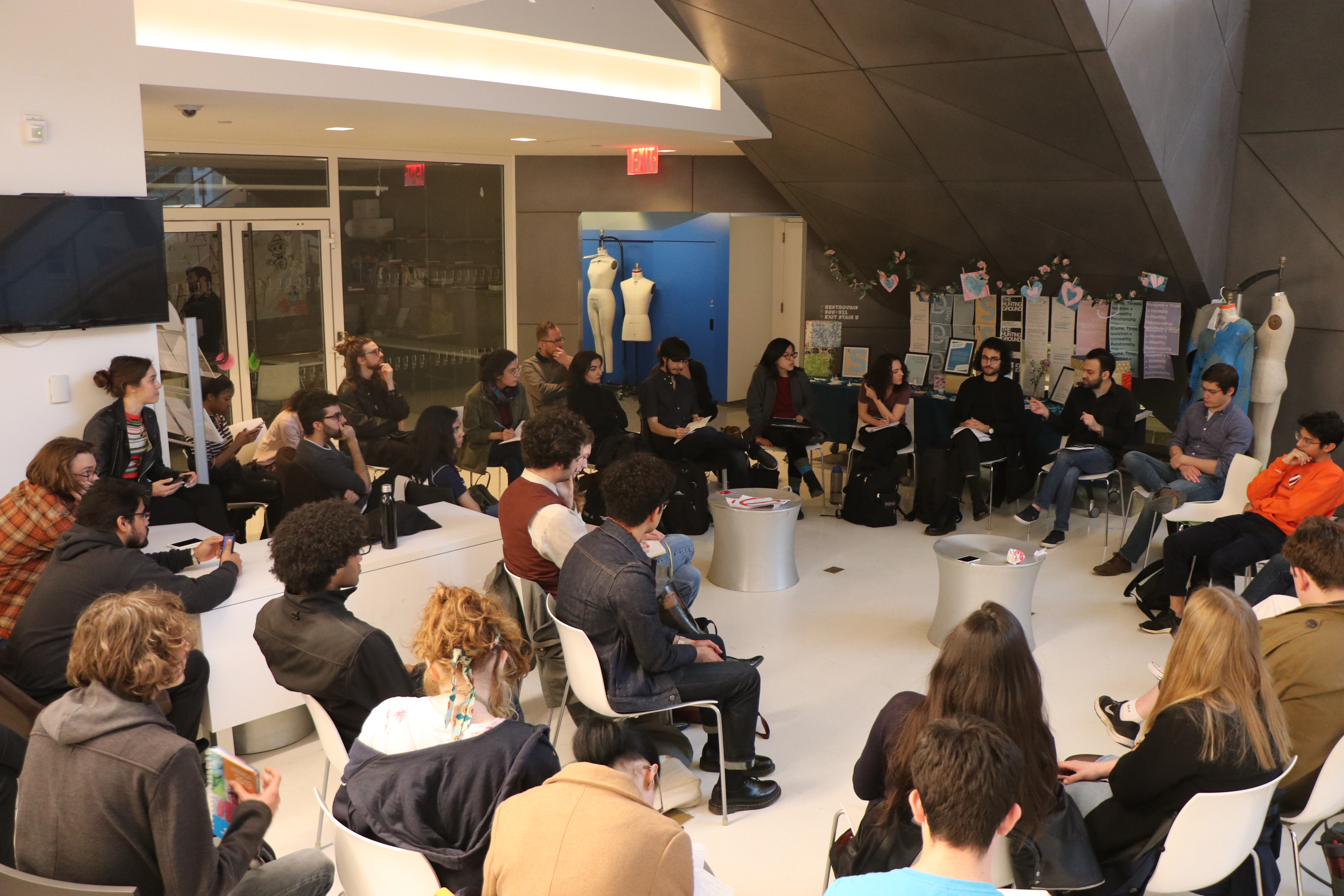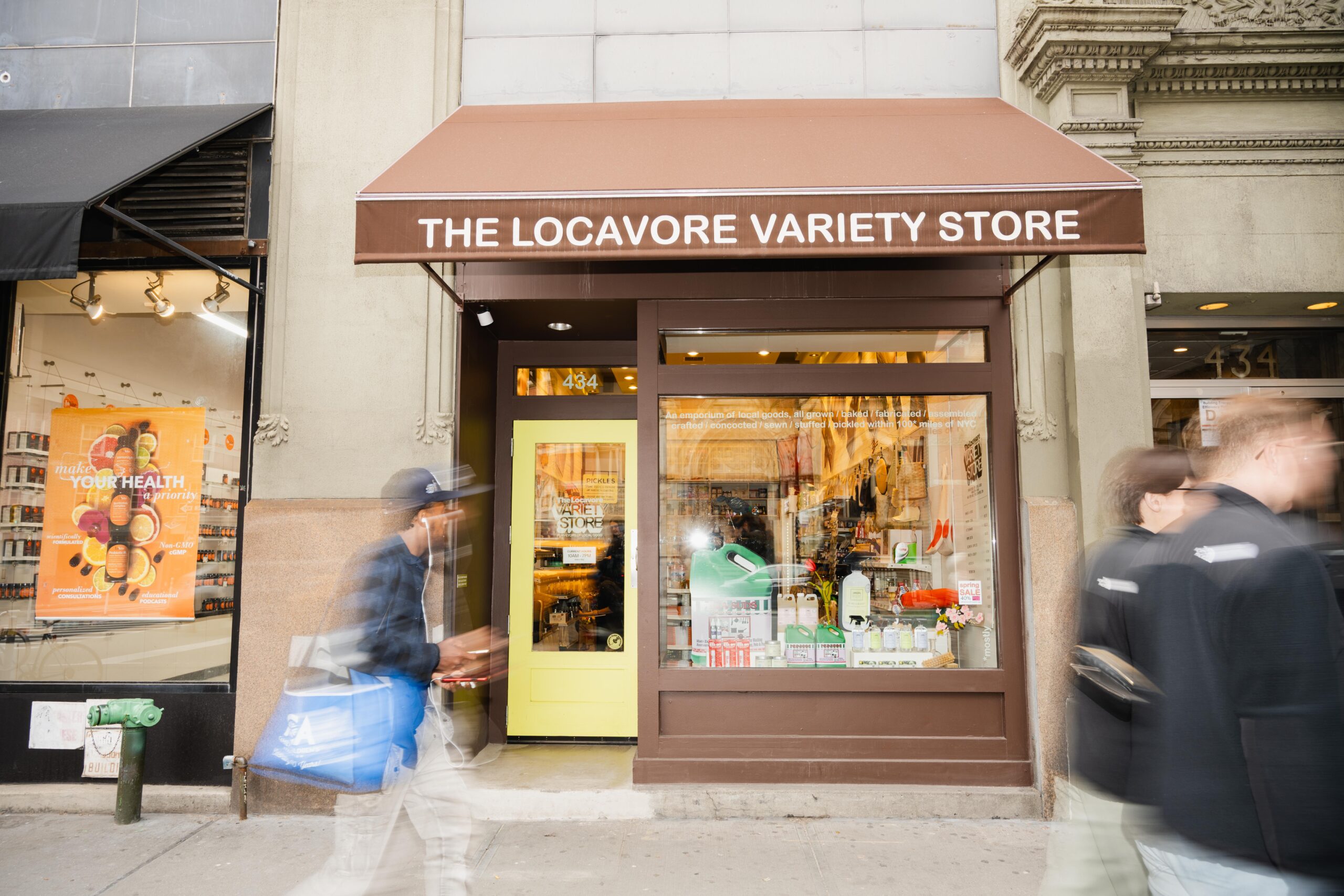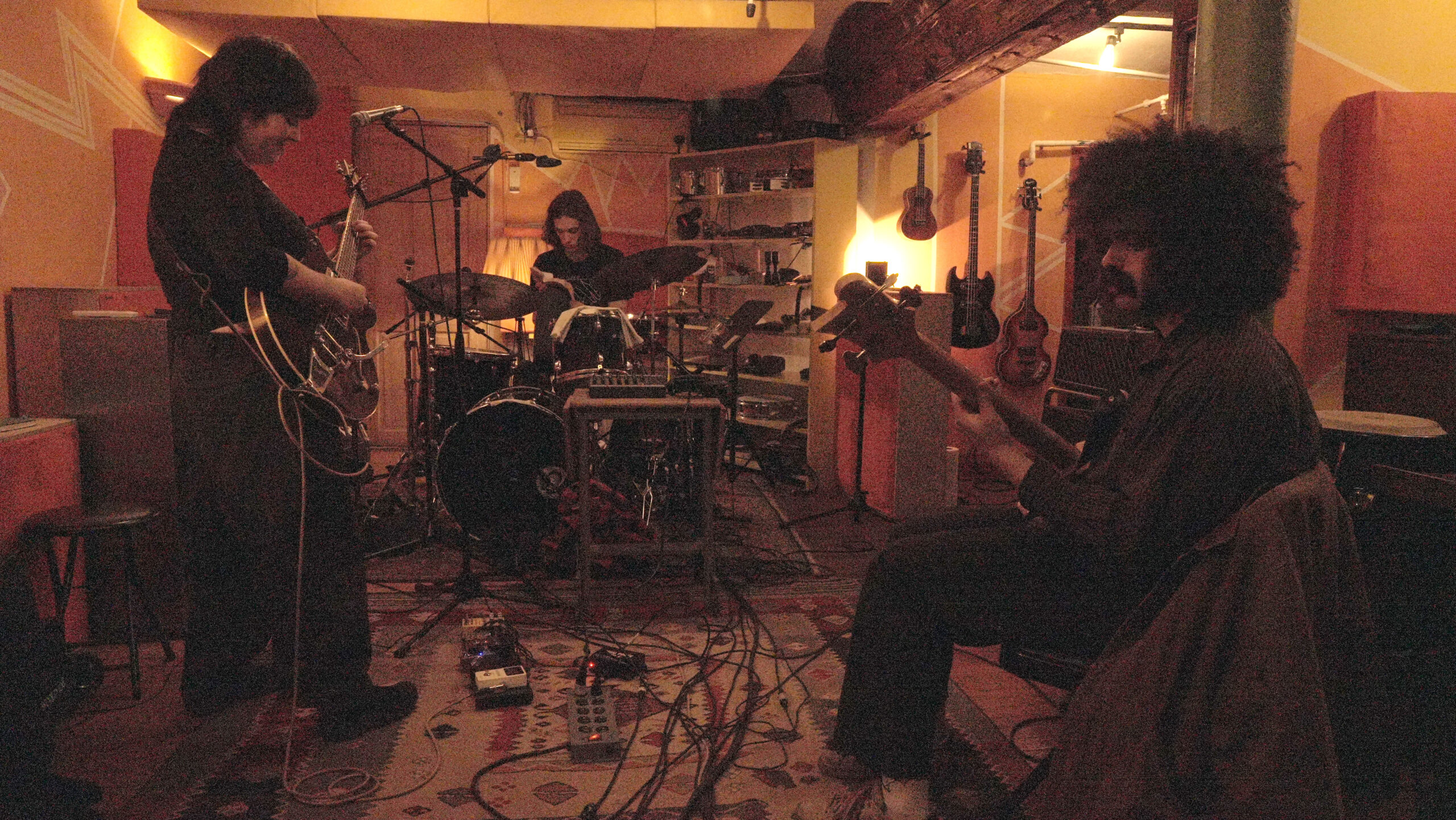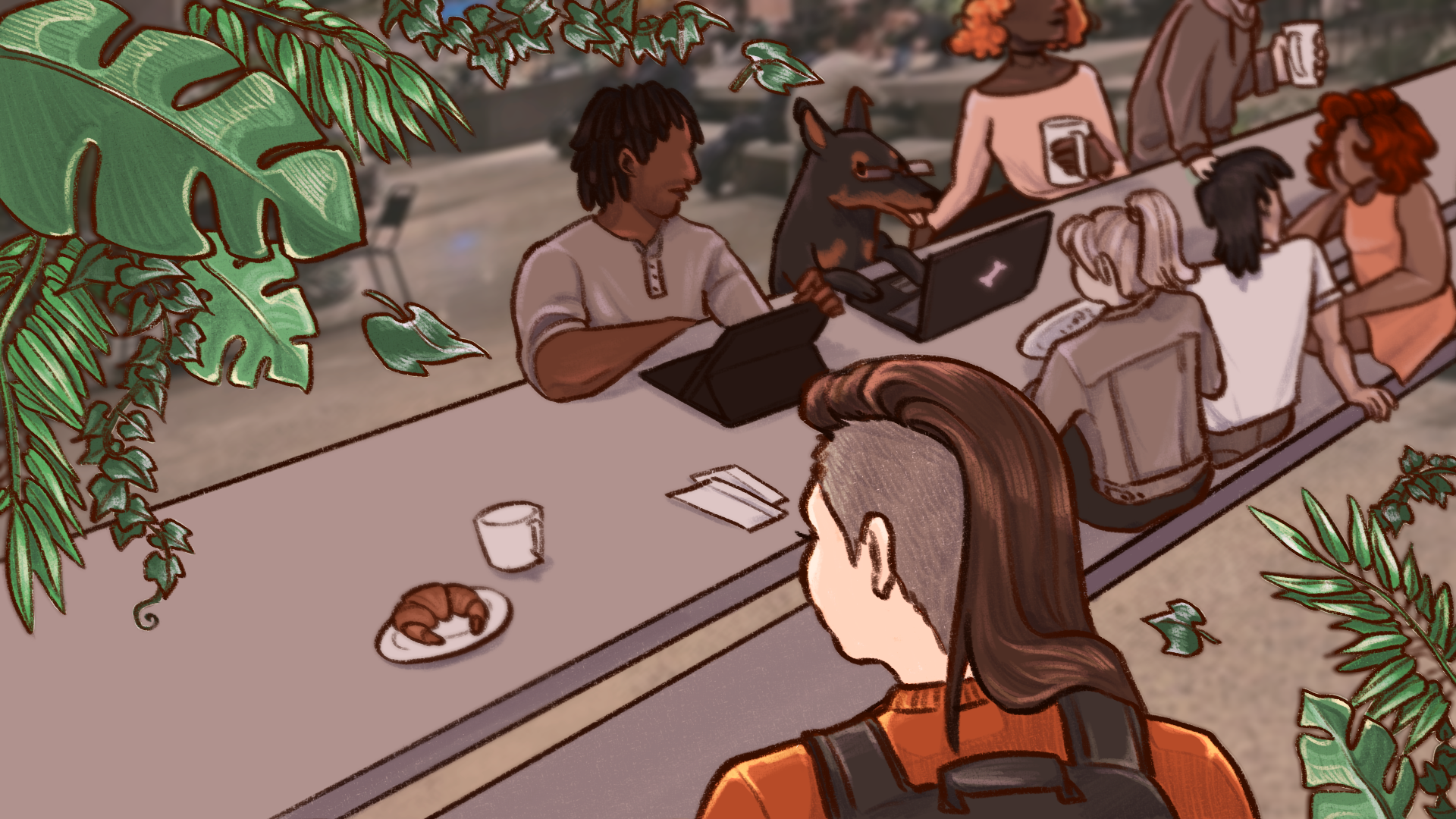This article was updated to include comments from the New School’s spokesperson about what prompted the University Services Fee to increase and who will be required to pay the new International Student Fee.
Outraged over the administration’s decision to raise tuition and increase student fees for the upcoming academic year, roughly 40 people from Student Employees at The New School union, the Graduate Faculty Student Senate, and other on-campus groups gathered for a joint meeting in the University Center’s Social Justice Hub on Tuesday evening to discuss how to respond and potential forms of protest.
“Our entire student community is adversely affected by these changes, and our ability to force the administration to reverse the fee hikes depends on the participation of each and every one of us,” SENS-UAW union chair and New School for Social Research sociology PhD student Bahareh Ebne Alian wrote in an email inviting union members to the meeting.
The April 16 gathering lasted 90 minutes as students expressed anger over the university’s fee increases and organized their collective response. The conversations resulted in plans to protest at today’s Presidential Search Committee Town Hall in Arnhold Hall at 55 W. 13th Street. At least 10 students attended, wearing red as a sign of protest. They voiced their concerns about the fees and handed out flyers detailing questions about the increases.
Students were made aware of the tuition and fee changes in a March 25 email sent by Senior Vice President for Student Success Michelle Relyea. “Each year, university leadership and the Board of Trustees face the difficult task of setting a tuition and fee structure that allows us to provide outstanding education and co-curricular services while accounting for inflation and other rising costs outside of the university. To maintain the quality of these services, tuition for the 2019–2020 academic year will increase by 3.8%, consistent with the previous year,” Relyea wrote.
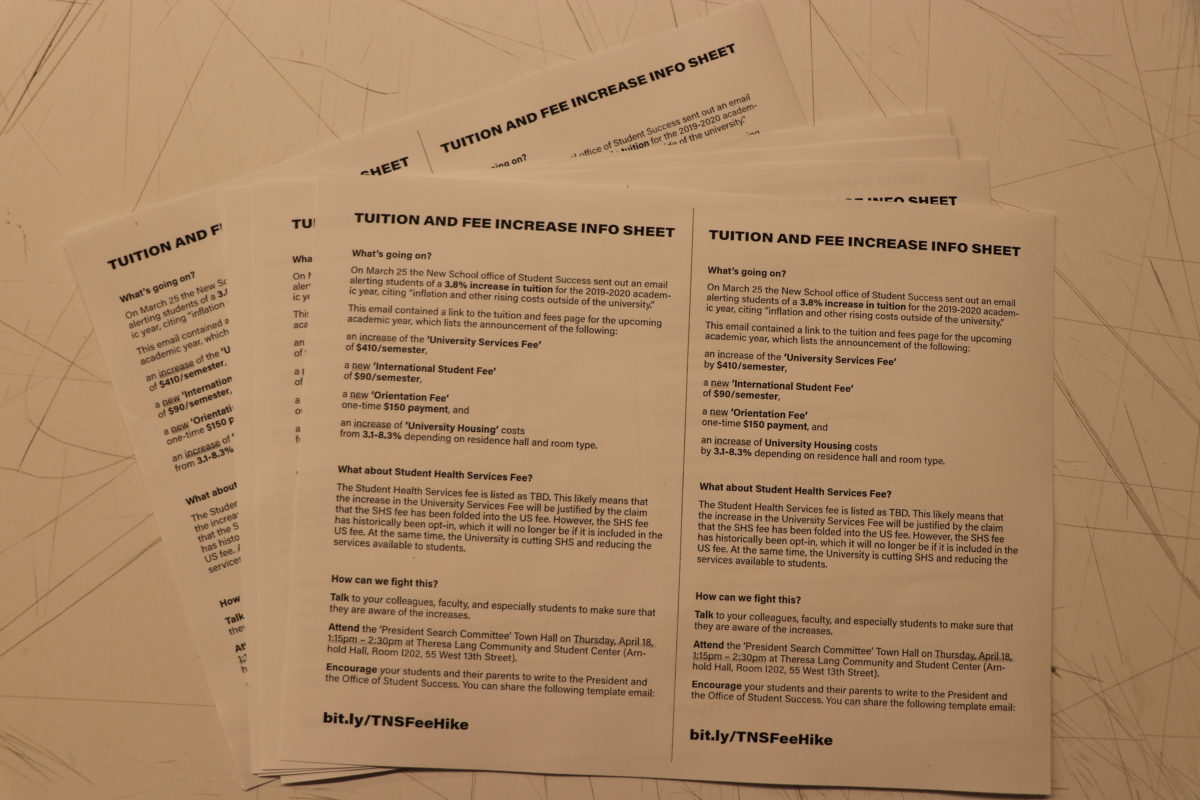
The Tuition and Fee page lists the fees that the SENS-UAW and the GFSS object to.
Under the “University Fees” section, the page details the University Services Fee at $600 per term. The Free Press independently confirmed that this updated fee is $410 more than the $190 fee students paid per term this academic year. The page also shows a new, “one time only” Orientation Fee of $150 and a new $90 per term International Student Fee. The page does not provide details or explanation of what these fees are for.
“Obviously there are increased costs because of inflation, I understand that,” Emmanuel Guerisoli, an NSSR PhD candidate in sociology and history, told the Free Press. “However they should not justify it by saying, ‘This has been inflation costs and external costs for the university.’ At least tell us which costs they are, because maybe those are costs that we don’t need.”
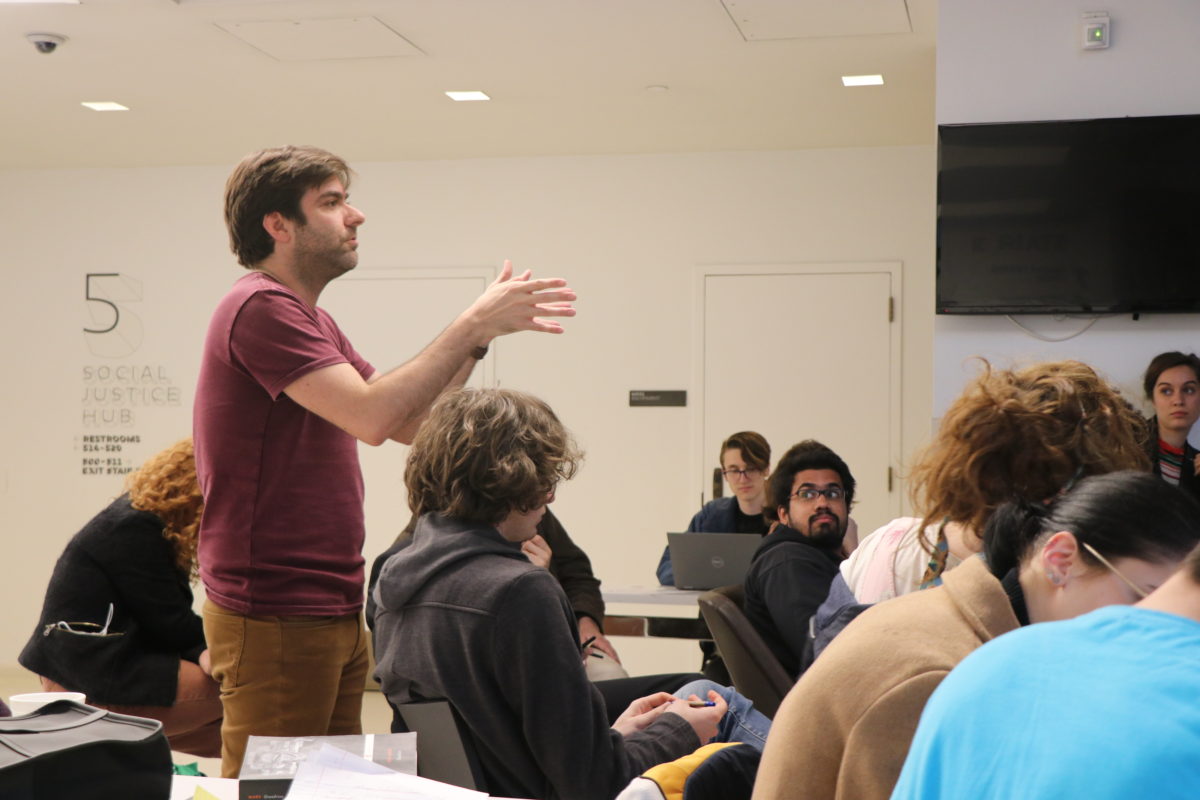
The Tuition and Fee page does not list the $370 per term Health Services Fee that was required from students this 2018-2019 academic year. In the past, undergraduate students taking less than six credits and all graduate students could waive the Health Services Fee with proof of insurance. Meeting attendees theorized that the administration might have combined the University Services Fee and former Student Health Services Fee into one charge.
“So now they’re doing this thing where they lump it together, and they don’t tell you what it’s for, and there’s no transparency whatsoever,” NSSR anthropology Masters student Leila Lin said. “It’s like a 300% increase and we have no idea where this money is going to.”
Further frustration was expressed at the International Student Fee, which is entirely new. Meeting attendees complained that the New School had not clearly delineated the purpose of the fee, and were unclear about whether it applies only to international students or the student body as a whole. SENS-UAW representatives at the meeting said students who emailed the university administration about this fee were told the charge would go towards funding International Student Services, and that more information would be provided over the summer.
“The problem is that the ISS is an agency that just doesn’t work very well,” Guerisoli told the Free Press. “It has in fact been putting many obstacles in the way of international students, and has been sometimes detrimental to them. So I don’t understand why we have to pay a fee for a service that I still don’t get in a satisfactory way.”
“The international students fee is blatantly—I think it’s racist and hypocritical,” Eli Nadeau, an NSSR PhD student in politics and SENS-UAW member, told the Free Press after Tuesday’s meeting, “I was excited to have a year where I did not devote as much of my time to activism, but honestly, I’m [not] willing to go to school at a place that would do this.”
Regarding the University Services and International Student fees, New School spokesperson Amy Malsin wrote in an email to the Free Press that “the university and health services has been combined into one single fee to capture the wider scope of services the university offers” and that “international students joining The New School for the first time in Fall 2019 will pay the international fee.”
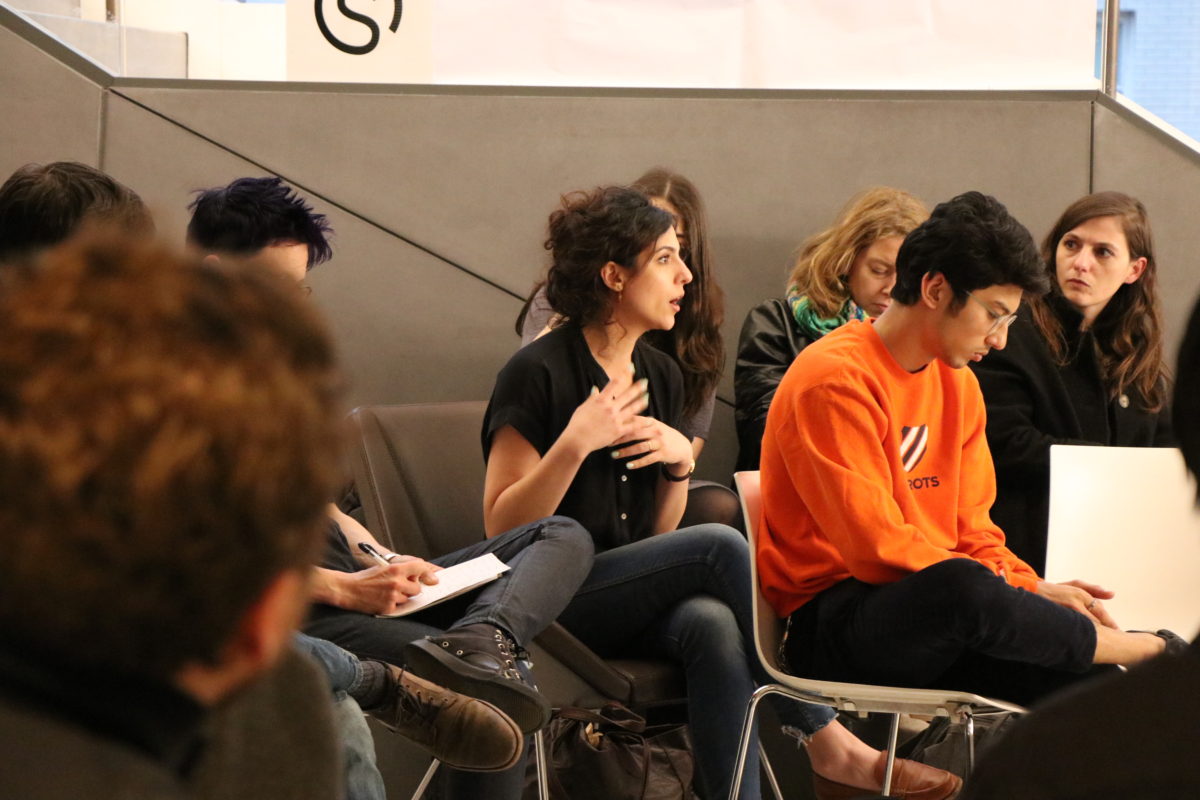
Students at the meeting discussed several possibilities for protest, aimed at getting the university to reverse its position and “reconsider this destructive course of action that is more likely to undermine the basis of the university’s core mission than it is to ensure a future for the New School as anything but a prestige brand for the wealthiest of students,” according to an email template the organizers are urging students to send to President David Van Zandt and Relyea.
Attendees discussed sending complaint letters to Board of Trustee members, starting a petition among faculty and student groups, circulating flyers, and holding rallies and sit-ins in administrative offices.
“All we’re advocating for is for a community within which we can study, work, play, love, live. So it’s a normal thing that we’re asking, which is, ‘Don’t charge us for our existence.’ Give us the means to exist well, to study well, to work well, to create well,” Nadeau told the Free Press after Tuesday’s meeting. “As a body of students, we can raise our voice together and say no, and the only thing they can do in response to that is to either listen or not listen.”

